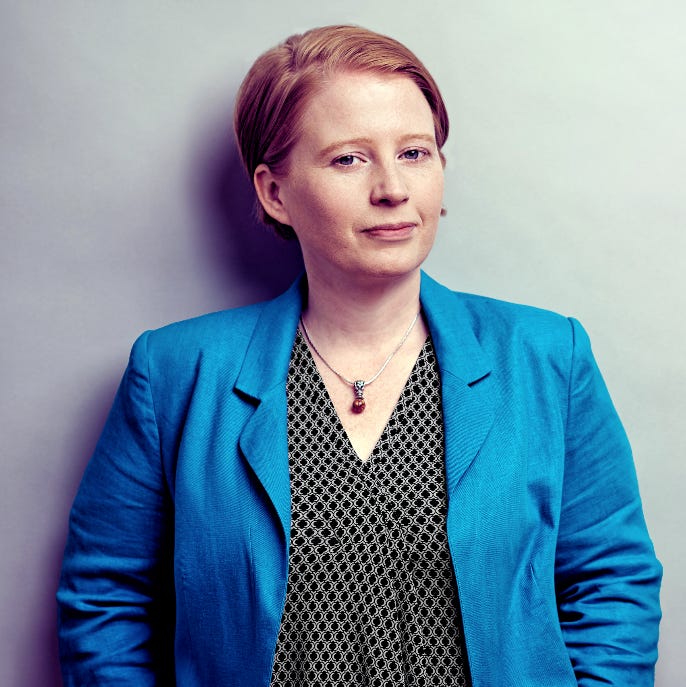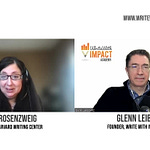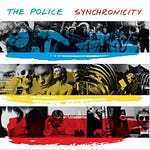If you’re currently writing a book, or you’re planning to write one, you’ll understand the complexities involved with writing, editing, designing, publishing, and marketing your book. You may have thought about getting the help of a book publishing coach or consultant to help guide you through the process. This is what Jenn T. Grace does as Founder and CEO of Publish Your Purpose. Jenn and her team help aspiring authors turn their dreams into published pages that have an impact on the world.
Jenn has published the books of nearly 100 business owners, entrepreneurs, speakers, and memoirists so more diverse stories can exist in the world and her authors can make a positive impact and achieve the recognition and success they deserve. She is the author of six books, including her memoir, House on Fire.
Jenn joined me recently for a Writing Masterclass, where she shared some of her best writing and publishing tips, from techniques to help you gain clarity around your target reader, to fighting imposter syndrome and staying true to your authentic voice, to building an audience of potential readers even before you’ve published your book.
Below are three video clips from the Masterclass, with edited transcripts. To watch the complete Masterclass with Jenn, exclusively for subscribers such as you, simply scroll to the bottom of this post. Or listen to the complete podcast at the top of this post.
Thank you so much for supporting Write With Impact Academy!
Write to an audience of one
The first thing that I would say is knowing with absolute clarity who you are writing for. Because once you know the who, everything else will fall into line. It doesn’t mean it will easily fall into line, but it will fall into place.
So what I tell people to do which might seem creepy or weird—but I know it works—is when you know who you’re writing for, do some kind of target market exercise, target reader exercise, whatever it might look like. When you know who that person is, a lot of times it’s somebody that you can actually identify, a singular person. You’re not writing for a million people, you’re writing for one person. So I would tell them, if it’s a client that you already have, a desired client you want to have, take their picture and print it out and put it on your monitor.
So when you are writing, every example that you say, the way in which you write, the words that you choose, you can keep looking back at that particular person, and say, “What would they want to see?” When you can do that, it makes the process so much easier, because you have so much more clarity.
Reading is a solo endeavor, you as the author to one reader. And when we write, sometimes we’re like, I’m writing for this mass audience because I want this to be a New York Times bestseller, and I want millions of readers. But you’re not writing to millions of readers, you’re writing to one person. So sometimes just that mindset shift for folks can really open the floodgates of just being able to articulate examples much more clearly. Because you’re not trying to be, “Oh it could be this person, it could be that person.” You have that clarity of who that person is.
I feel like that’s my big number-one take-away. And yes, it might be a little creepy to have that face of somebody on your monitor, but if it works, it works.
Stay true to your authentic voice
I think a lot of times as first time authors we come into it feeling like we ourselves are not enough. That our natural default writing style is not enough. So we have imposter syndrome that says, “Who are you to write this book?” Or, “Why do you think you’re good enough to be competing with so and so?”
And we get all in our head and we go down into this ugly rabbit hole with all these self doubts and self-limiting beliefs, and then we start to write differently because we don’t trust our own natural instincts. And when we start to write differently, we start to create that horrible scene where now what people know us for and what people are reading are not matching.
And so what I tell folks is it’s not necessarily as much about the language that we use, or the examples that we share, or the style of our writing, but it’s about being as natural and true to your own authentic voice right out of the gate.
We work with a lot of people with PhDs; they have been beaten into writing in a specific style. And so, in those instances, me trying to fight with the academic to change their natural writing style is not really going to serve anybody if that’s the style that their audience already expects, that more intellectual type of writing approach.
Or with my books, I’m working on my seventh one right now, all of my books are 100% the way I speak. What you see is what you get. So if you pick up my book everyone always says it sounds like you’re talking directly to me. And I’m like that’s exactly the point.
If I were to try to write in an academic way, I would be banging my head against the keyboard over and over again and it would be painful and nothing would ever come out. And it’s reverse for those that do write in a more structured or academic way. If they had to write conversational and that’s not their default, they would have the same experience.
So for me it’s not necessarily the language that we are using, but it’s more that communication style that we default have. When there’s a synergy to it, where you’re an amazing speaker and an amazing writer, or even if you’re a boring speaker and a boring writer, if you have that expectation set and people are still attracted to you because you write in a kind of not too spicy way, there’s still going to be an audience who are looking specifically for that.
It’s a matter of that consistency to be that same style wherever you show up. The people who struggle with this are often times on either extreme of that. Their writing is on one side of that and their speaking is on the other, and people are like, “What the heck just happened here?” Or the same with the book.
The power of storytelling in nonfiction
When you’re reading a story, and you can see yourself reflected back in whatever those words are, it helps you digest that information in a different way; you can process that information in a different way, you can feel yourself, see yourself, feel valued in that conversation.
If you have a book that’s about, “How to do your taxes”—even something like that—having stories in there would be great, because stories can make you feel less alone and less isolated. So, if you’re reading a book about how to do your taxes and there’s some case study at the top about how somebody botched their taxes to whatever crazy degree, you can read that and be like, “You know what, I’m not as bad as this example.” And then all of a sudden you feel a little better, even though you might have picked up that book because you’re really stressed out about how you screwed up doing your own taxes.
I think storytelling just gives us benchmarks and metrics to compare our own progress against. Sometimes they can make us feel worse, but I feel like most of the time they make us feel better, because it makes you feel like, alright, I’m not alone in whatever the thing is that I don’t know.
Watch the complete Writing Masterclass with Jenn T. Grace (for subscribers only)
Thank you so much for subscribing to Write With Impact Academy! Please reply to this email with your feedback and suggestions for future Masterclasses or any other type of content you would like to see here.
— Glenn














Share this post